On the occasion of World Human Rights Day (December 10), Deputy Foreign Minister Ha Kim Ngoc wrote an article on Vietnam’s great efforts to enforce international commitments on human rights. Vietnam Pictorial would like to present part of the article.
Vietnam joins international treaties and realises commitments on human rights
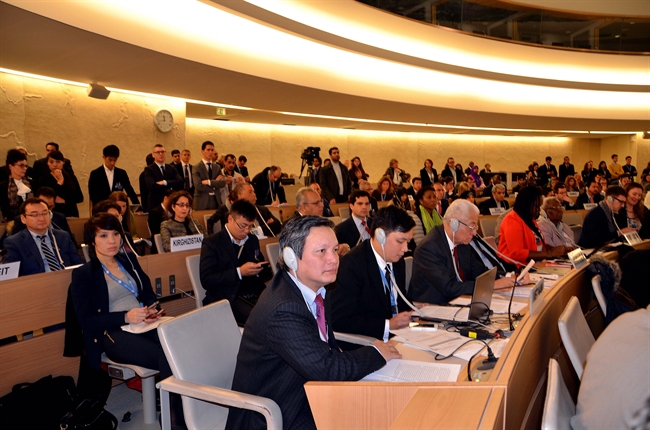 Vietnam’s delegation attends the 28th session of the United Nations Human Rights Council. Photo: To Uyen/VNA
Vietnam’s delegation attends the 28th session of the United Nations Human Rights Council. Photo: To Uyen/VNA
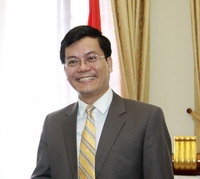
Deputy Minister of Foreign Affairs
Ha Kim Ngoc.
(Photo: Nguyen Dan/VNA)
"Through international cooperation, Vietnam is acquiring an increasingly active role and contributing greatly to the building of values of human rights in general on a regional and global scale." |
Vietnam has joined seven out of nine essential international treaties on human rights. In particular, the country was the second in the world and the first in Asia to become a member of the Convention on the Rights of the Child.
Earlier this year, Vietnam ratified the Convention on the Rights of Persons with Disabilities and the Convention against Torture. The country also participated in 20 conventions on labour rights initiated by the International Labour Organisation (ILO), including five out of eight core conventions, which shows its high commitment despite socio-economic difficulties.
Vietnam’s efforts are not only shown in the number of international human rights conventions to which it is a member but also the high sense of responsibility for enforcing them, including integrating the conventions’ content into domestic laws, raising public awareness of their contents on mass media and school curricula, and seriously fulfilling compulsory obligations to build and submit national reports. The country has submitted a total of 16 reports to the UN human rights Committee.
Vietnam first deployed the UN Human Rights Council’s universal periodic review (UPR) mechanism in May 2009 and accepted 96 out of 123 recommendations. During the second UPR in February 2014, Vietnam accepted 182 out of 227 recommendations, which is a high rate of acceptance of recommendations. The country drafted its reports in a scrupulous manner, and is serious about implementing the accepted recommendations.
Recently, the Prime Minister approved a master plan on implementing 182 recommendations and the Foreign Ministry is assigned as the coordinator for the plan’s execution.
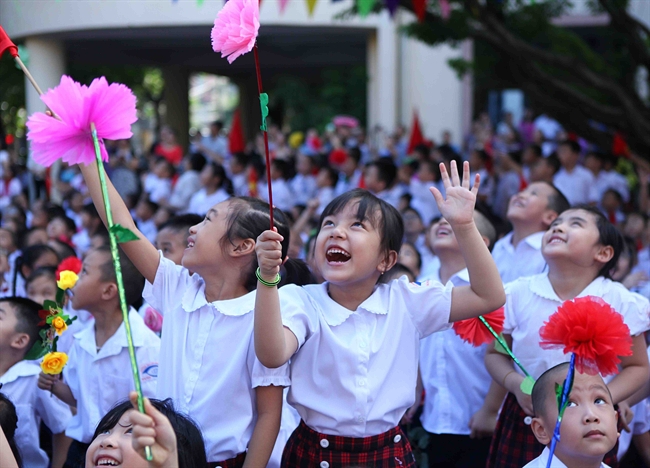 The national program on child protection has built a safe and healthy environment
The national program on child protection has built a safe and healthy environment
that all children are guarded, cared for and educated. Photo: Quy Trung/VNA
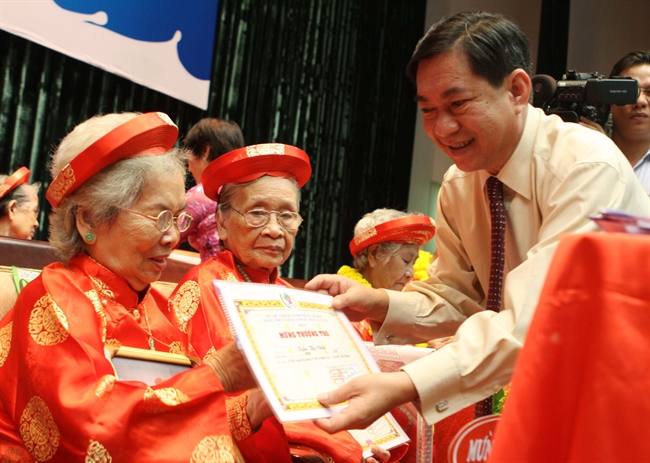 In Vietnamese culture, elders are always respected and taken care of. Photo: Cong Dat/VNP
In Vietnamese culture, elders are always respected and taken care of. Photo: Cong Dat/VNP
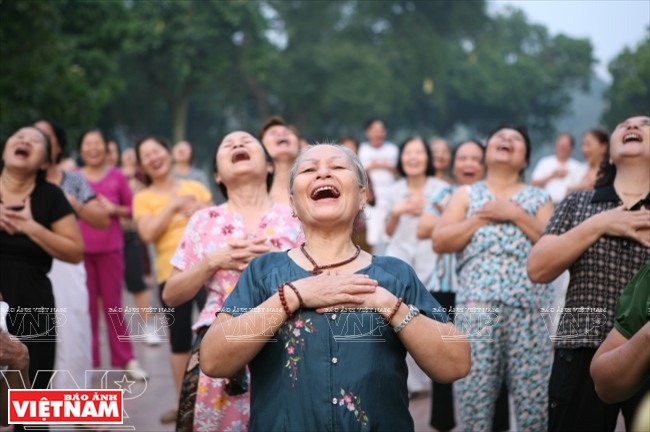 The material and spiritual life of elders has been improved. Photo: Cong Dat/VNP
The material and spiritual life of elders has been improved. Photo: Cong Dat/VNP
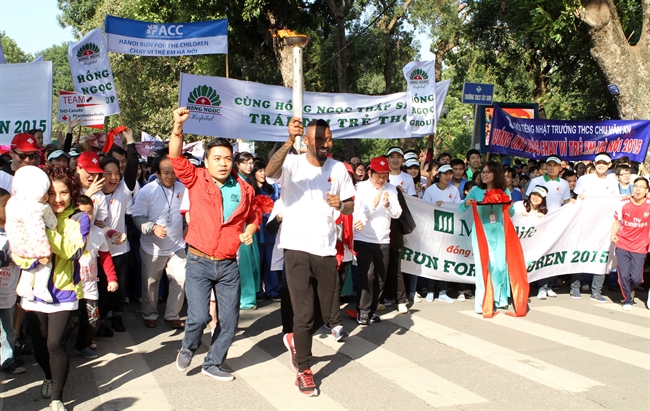 Hanoians attend a fund-raising run for unprivileged children who suffer from cancer or heart diseases.
Hanoians attend a fund-raising run for unprivileged children who suffer from cancer or heart diseases.
Photo: Quoc Khanh/VNA
Evaluating Vietnam’s Contributions
Through international cooperation, Vietnam is acquiring an increasingly active role and contributing greatly to the building of values of human rights in general on a regional and global scale, which is in line with its external relation orientations of becoming an active and responsible member in the process of shaping common regulations and standards.
Vietnam’s contributions are reflected in its approach that upholds dialogues and constructive cooperation to narrow differences and avoid confrontations in human rights issues. The country also supports a comprehensive and balanced approach to rights and harmonising individual rights with collective rights, which is clearly demonstrated in Vietnam’s involvement in the UN multilateral mechanisms and the ASEAN frameworks on human rights.
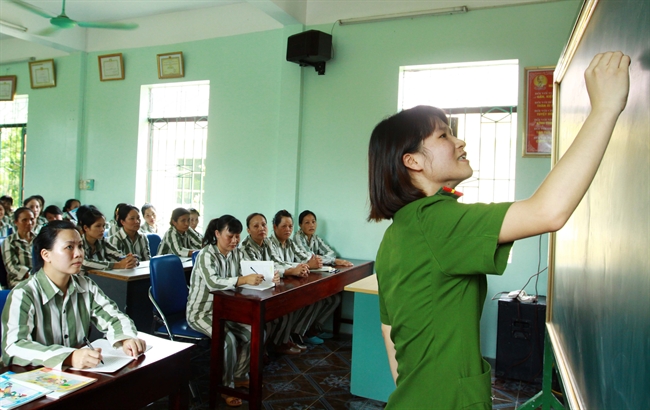 Prisoners have an opportunity to study, work and practice in preparation for their rehabilitation into the community.
Prisoners have an opportunity to study, work and practice in preparation for their rehabilitation into the community.
Photo: Doan Tan/VNA
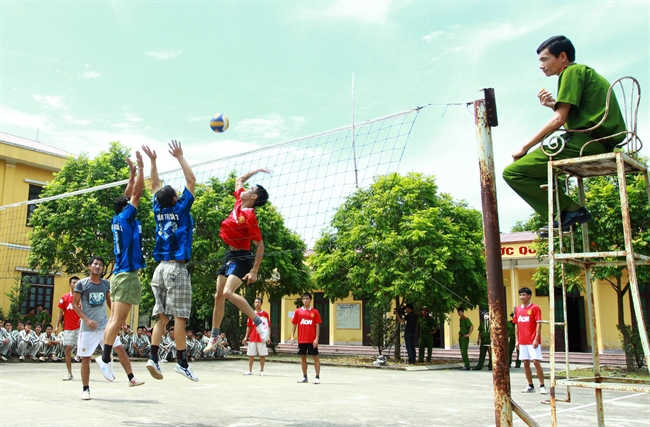 Prisoners playing sport. Photo: Doan Tan/VNA
Prisoners playing sport. Photo: Doan Tan/VNA
Countries worldwide have welcomed Vietnam’s efforts in joining and seriously abiding by international conventions, UPR recommendations and thorough preparations for devising and presenting national reports.
Several developing countries want to learn from Vietnam’s experience, and many others consult Vietnam when dealing with complicated and sensitive human right issues.
By VNA/VNP